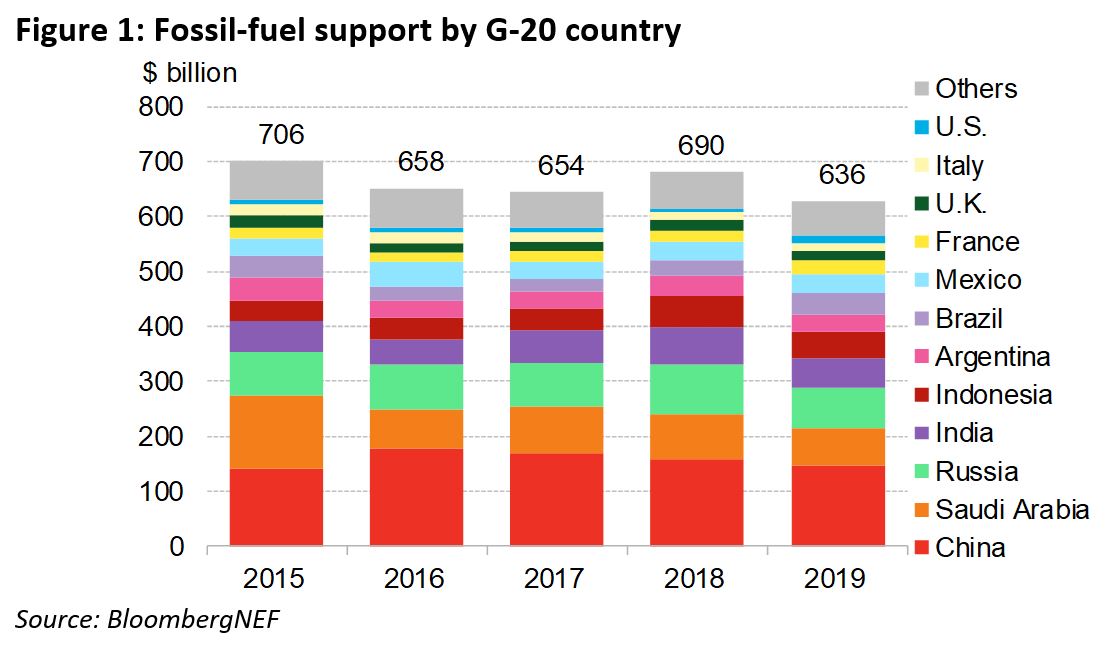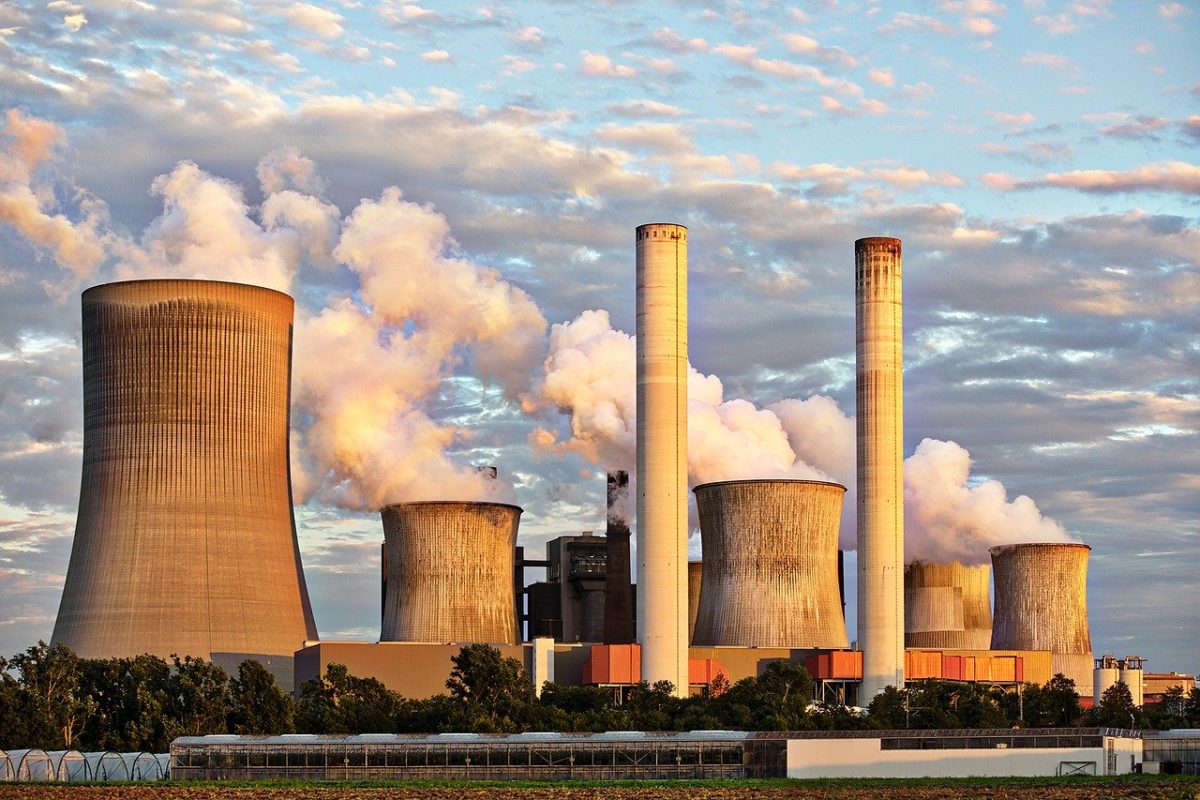A new climate factbook released by BloombergNEF has criticized the policy actions of G20 members, and highlighted the significance of poorly directed fossil-fuel funding.
The Climate Policy Factbook published this month has monitored the progress made towards a low-carbon economy by G20 members, which include the EU alongside 19 of the world's biggest national economies.
The headline figure is that governments provided a reported $3.3 trillion of direct support for coal, oil and gas plus related fossil-fueled power for the period between 2015 and 2019. Considering 2021 prices, Bloomberg puts that sum as being able to fund 4,232 GW of new solar power plants.
That figure is listed as being more than 3.5 times the size of the U.S. grid, and close to 80 times more than the sum of total grid-connected solar installed in Germany, one of the world's leaders in PV. Still, the report lists Germany as investing $46 billion in fossil-fuel support in the 2015-2019 period – the same amount as the U.S.
China, with $793 billion spent on fossil fuels, Saudi Arabia ($440 billion), and Russia ($406 billion), were listed as the largest supporters:

Bloomberg's factbook added, support for fossil fuels in 2019 by G20 countries was comprised of investments by state-owned enterprises. Singling out Turkey, a large-scale coal plant investor, the report noted analysis that said for the cost of adding 10 GW of coal power, Turkey could build 25 GW of solar.
The Climate Policy Fact Book focuses on three areas for government action to limit warming:
- Phasing out support for fossil fuels;
- Advancing carbon pricing to put a price on emissions; and
- Encouraging climate risk disclosure.
Michael Bloomberg, founder of Bloomberg, and the UN secretary-general’s special envoy on climate ambition and solutions, said: “Winning the fight against climate change requires urgent and bold action across every industry and we need governments to lead the way. Our hope is that G20 members take this report to heart, use its recommendations to hit their Paris Agreement targets, and show the world the health and economic benefits of building a resilient, sustainable global economy.”
Antha Williams, environment lead at Bloomberg Philanthropies, said the continued backing for coal, oil and gas is “reckless,” with urgent action required. “As a host of climate emergencies intensify around the world, the continued development of fossil fuel infrastructure is nothing short of reckless,” she said.
The G20 agreed in 2009, to “phase out and rationalize, over the medium term, inefficient fossil fuel subsidies,” but did not define “inefficient.”
This content is protected by copyright and may not be reused. If you want to cooperate with us and would like to reuse some of our content, please contact: editors@pv-magazine.com.




By submitting this form you agree to pv magazine using your data for the purposes of publishing your comment.
Your personal data will only be disclosed or otherwise transmitted to third parties for the purposes of spam filtering or if this is necessary for technical maintenance of the website. Any other transfer to third parties will not take place unless this is justified on the basis of applicable data protection regulations or if pv magazine is legally obliged to do so.
You may revoke this consent at any time with effect for the future, in which case your personal data will be deleted immediately. Otherwise, your data will be deleted if pv magazine has processed your request or the purpose of data storage is fulfilled.
Further information on data privacy can be found in our Data Protection Policy.